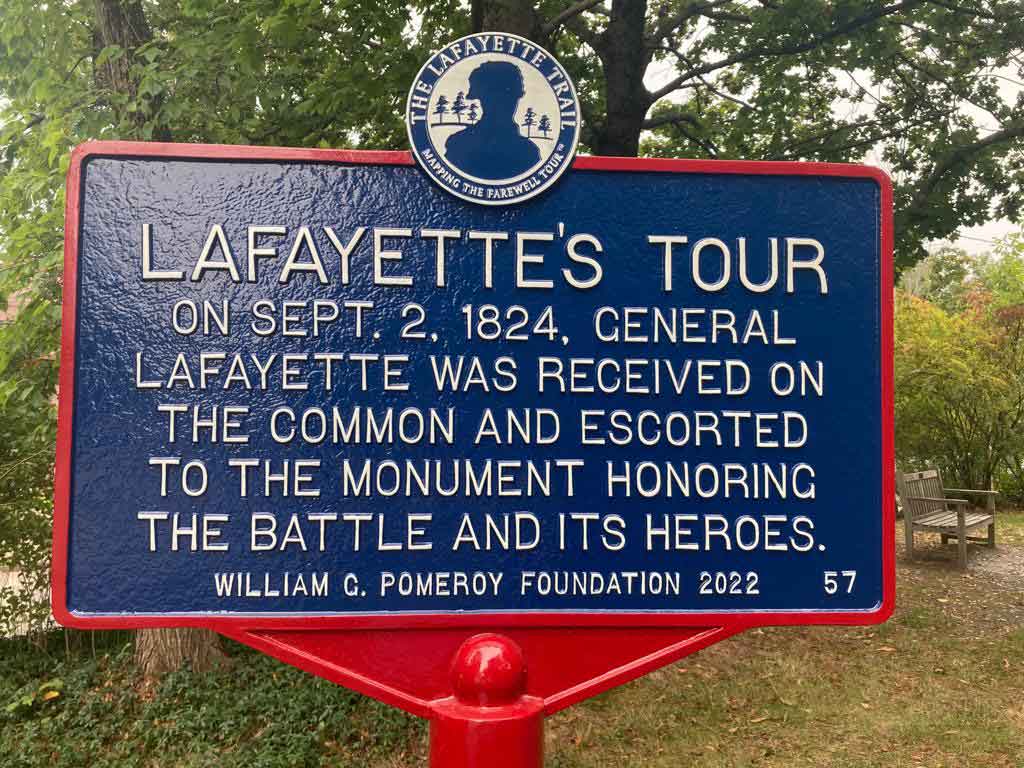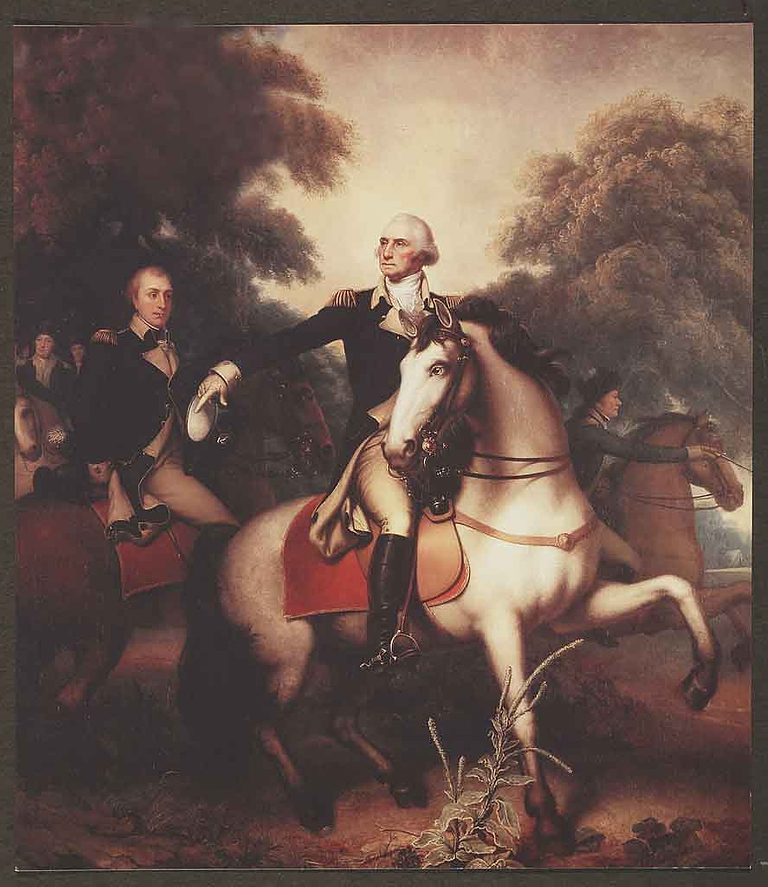 As the country prepares to mark the 250th anniversary of the beginning of the American Revolution, many communities are planning celebrations to honor the singular story of the United States and commemorate the meaning of what it means to be an American. This effervescent environment presents a great opportunity to revisit the legacy of some of the historical figures that marked early American history by helping to establish the political foundations that have sustained the American experiment for 250 years. One of those pivotal figures is General Lafayette, a French-born hero of the American Revolution, whose legacy continues to be the recipient of the affectionate curiosity of the American people.
As the country prepares to mark the 250th anniversary of the beginning of the American Revolution, many communities are planning celebrations to honor the singular story of the United States and commemorate the meaning of what it means to be an American. This effervescent environment presents a great opportunity to revisit the legacy of some of the historical figures that marked early American history by helping to establish the political foundations that have sustained the American experiment for 250 years. One of those pivotal figures is General Lafayette, a French-born hero of the American Revolution, whose legacy continues to be the recipient of the affectionate curiosity of the American people.
Lafayette was a French aristocrat who volunteered with the Continental Army, defying the will of his family to pursue what his heart commended him to do. His commitment to the American cause continues to be a powerful reminder of the universal appeal of the American Revolution. By the summer of 1775, at age 17, Lafayette was already an inducted member of the freemasonry and was imbued with the ideals of the western Enlightenment. Lafayette valued the noble character of fighting to elevate the human condition. He was deeply convinced of the transformational character of the American Revolution.
In his view, the conflict represented the single greatest chance of establishing a nation founded on enlightened principles that could challenge the dominance of European authoritarian systems. Lafayette placed his trust in American leaders to forge a government serving the best interest of mankind. His selfless support for the formation of the United States lives on in the form of a continued remembrance of his life and values.
LAFAYETTE IN THE UNITED STATES
Lafayette visited the United States four times in his life. He first arrived in South Carolina in 1777. Having returned to France in 1779, he made a second trip back to the U.S. aboard the Hermione, which landed in Boston in April 1780 with welcome news that military support from France was en route. Following the victorious end to the American Revolution, Lafayette returned to North America for the third time in 1784. During that trip, he traveled across most of the Atlantic states as far north as Portsmouth, NH, and as far south as Yorktown, VA. While in the north, he participated in the peace negotiations with the Six Nations of the Iroquois Confederacy leading to the Treaty of Fort Stanwix in October 1784. In Virginia, he reunited with his friend George Washington at Mount Vernon.
More than 40 years later (at the invitation of Congress), Lafayette effectuated a triumphal tour of the United States from August 16, 1824, to September 7, 1825 - visiting all 24 existing states, and DC.
The country had changed greatly since Lafayette was last seen in the U.S. It had grown more polarized. The French Revolution had led to an ideological split within Washington’s Cabinet. Napoleon’s transatlantic ambitions agitated the Caribbean and stressed the U.S. diplomatic corps in Europe. Following the Louisiana Purchase, assimilating the populations living in Louisiana was a major preoccupation that lasted throughout the Jefferson administration. The War of 1812 had a devastating effect on American commerce, although a short-lived post-war nationalism gave the illusion that the U.S. was uniting again. It was a mirage. By 1820, the country was back on a dividing path. Northern industrial interests were ever more at odds with southern cotton exports. More states had joined the Union, as the economy looked increasingly West rather than overseas. Some of these new states welcomed slavery. Others prohibited it. The 1820 Missouri Compromise provided a temporary measure to preserve national unity. However, it concomitantly exposed the incapacity of the nation to resolve its differences on the subject. Finally, the developments of the 1824 presidential election fragmented the country even further.
With a generation of Revolutionary War leaders dying out, the burden of ensuring the survival of the spirit of the American Revolution fell on Lafayette in 1824. He was decades younger than most of his brothers-in-arms and was still able to serve as a reminder of that pivotal generation. For more than one year, he was a traveling exhibit of the Revolutionary War. Youngsters could see the great Lafayette, the intrepid Frenchman who had fought alongside Washington all those years ago.
Lafayette contributed a much-needed boost of confidence to the American people at a time when many doubted that their country would be more than just a short-lived experiment. He resuscitated awareness in the foundations of the country. He provided a platform for people to emphasize what they shared instead of what drove them apart.
With Lafayette among them, Americans celebrated the political and social results of the American Revolution and developed a desire to memorialize the foundations of the country. Arches were erected across the country in tribute to Lafayette. By honoring the Frenchman, the country was truly honoring itself and the progress it had made since its seminal revolution.

A Lafayette Trail Marker, Honoring Lafayette’s Visit to Lexington, Massachusetts, on September 2, 1824
| © Julien IcherLEXINGTON AND CONCORD – UNITED IN HONORING LAFAYETTE
As part of his Farewell Tour to the United States, Lafayette visited Lexington and Concord on September 2, 1824. Lafayette was the epitome of the American Revolution, and the birthplaces of the conflict rose up with majesty to honor him. A spirit of friendliness, patriotism, and pride presided over the celebrations. Both towns vividly remember Lafayette’s visit to this day. Their connection to Lafayette cultivates an environment of collaboration between all the communities whose story is woven together by the final journey of the Frenchman in the United States.
The Lafayette Trail, Inc. works closely with communities to honor the memory of Lafayette’s 1824-1825 Farewell Tour to America. To date, 122 markers have been installed in sites where Lafayette visited. Lexington, MA, will celebrate the 200th anniversary with a reenactment of Lafayette’s visit in September 2024. Concord, MA, has also been invited to include a marker to honor this ardent friend and supporter of the United States.
In many ways, our modern society is experiencing a moment that is reminiscent of what Lafayette witnessed in 1824. Political polarization is rampant, and trust is sorely lacking. However, just like in 1824, the country can be reminded that it possesses in its national institutions the resiliency necessary to bounce back from divisiveness. Furthermore, there are icons like Lafayette in our shared national history who poured all their energy into ensuring the formation of this country. Their sacrifices cannot be forgotten or overlooked.


